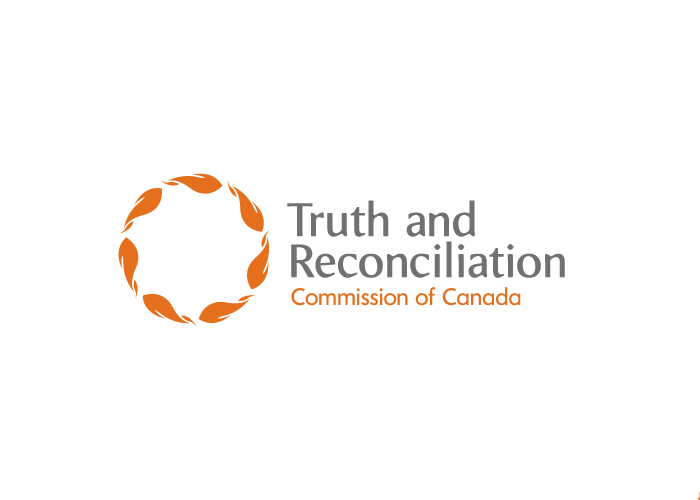 On June 21 – 24, 2012, the Truth and Reconciliation Commission of Canada (TRC) held the Saskatchewan National Event at Prairieland Park. Approximately 25, 000 people attended the event over the four days, including 800 students. There were displays set up that explained the timeline of the residential schools and its long term effects on first Nations people. Other displays explained some of the cultural practices of First Nations people and their importance within the culture. On the Sunday, many local churches encouraged their members to attend the National Event in place of attending church.
On June 21 – 24, 2012, the Truth and Reconciliation Commission of Canada (TRC) held the Saskatchewan National Event at Prairieland Park. Approximately 25, 000 people attended the event over the four days, including 800 students. There were displays set up that explained the timeline of the residential schools and its long term effects on first Nations people. Other displays explained some of the cultural practices of First Nations people and their importance within the culture. On the Sunday, many local churches encouraged their members to attend the National Event in place of attending church.
Ehrlo Counselling’s Shelley Tamaki participated in the National Event. Her role in this event was that of a mental health therapist. She helped debrief survivors after they made their statements. She was also available to listen to survivors who were not yet ready to give formal statements and to bear witness to the stories of residential school survivors.
Tamaki indicated that the purpose of the National Event was to gather statements from survivors for truth-telling, reconciliation, research and public education. “Residential schools are part of our shared history, yet they are not well understood. There needs to be a lot of healing and repairing of relationships.”
In preparation for the Saskatchewan National Event, the TRC hosted 12 community hearings in Saskatchewan. The purpose of the Saskatchewan Hearings were to inform the public about the Commission’s work and statement gathering process, and provide survivors with time to reflect and share their experiences leading up to the TRC’s fourth National Event. These Hearings provided an opportunity for Residential School Survivors to share with the Commission and Canada the unique experiences of children who attended Residential Schools.
 Tamaki has worked with First Nations community for about 16 years in a variety of positions. These include Special Ed Consultant and Educational Psychologist for four First Nations Schools with the File Hills Tribal Council, Clinical Psychologist for Ocean Man First Nation, Psychologist supervisor on Muskowekwan First Nation, and consulting psychologist for the former Peyakowak. Tamaki is also a certified First Nations and Inuit Health Therapist.
Tamaki has worked with First Nations community for about 16 years in a variety of positions. These include Special Ed Consultant and Educational Psychologist for four First Nations Schools with the File Hills Tribal Council, Clinical Psychologist for Ocean Man First Nation, Psychologist supervisor on Muskowekwan First Nation, and consulting psychologist for the former Peyakowak. Tamaki is also a certified First Nations and Inuit Health Therapist.
“The experiences at the residential schools have impacted generations – families, parents, and children,” explained Tamaki.
Survivors of the residential schools, who are now parents, at times tell Shelley that they don’t know how to demonstrate their love to their children because love was never shown to them.
“It is quite sad. They really have a hard time showing love and affection because it wasn’t shown to them. Their memories and stories they shared at this National event were very hard, emotional and disturbing.”
Tamaki further explained that most people don’t understand what it was like back in the day for First Nations people to live on reservations.
“There were Indian agents who controlled everything and everyone. They decided if a person could leave the reserve. For example, one woman talked about how her sister on the neighbouring reserve had passed away, but she was unable to be there because she could not get permission from the Indian agent to allow her to leave her reserve. The Indian agents also exploited revenue from the crops and livestock of First Nations people, making great profit from them while the First Nations people barely made a living, became frustrated and despondent.”
Tamaki hopes to participate in further events, the next being in Quebec followed by Edmonton and Vancouver. There are seven events in total and Saskatoon’s was the fourth.
“There were 457 therapists from across the province involved. I am so proud of Shelley’s involvement in these events and for representing Ehrlo Counselling,” said Bree Fiissel, director of Ehrlo Counselling.
The Truth and Reconciliation Commission was established as a result of the 2007 Indian Residential Schools Settlement Agreement. Its mandate is to inform all Canadians about what happened in the 150 year history of the Residential Schools, and guide and inspire a process of reconciliation and renewed relationships based on mutual understanding and respect.
For more information on the work of the Truth and Reconciliation Commission, its events, and resources please visit: www.trc.ca.
To view the Harper government’s apology issued to former residential school students, click here.
*Images taken from www.trc.ca


